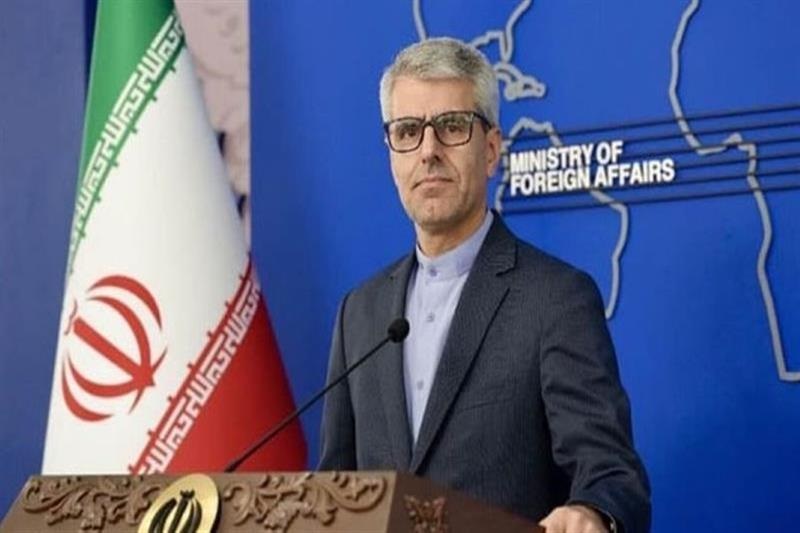Iran has called on the United States to provide a clear guarantee on how sanctions will be lifted, if both sides are to finalize a new nuclear agreement.
This demand, according to The Guardian, was made by Esmail Baghaei, spokesperson for Iran’s Ministry of Foreign Affairs, during a press briefing on Monday, June 2, 2025.
His comments came shortly after the U.S. submitted a proposal it described as “acceptable.”
However, unverified reports suggest that Iran considers the proposal a “non-starter” and is preparing to reject it.
The two nations have been engaged in seven weeks of negotiations focused on Iran’s nuclear program.
The U.S. has been pressing for guarantees that Iran’s program is strictly peaceful.
On the other hand, Iran is seeking relief from severe economic sanctions that have significantly impacted its economy in recent years.
However, Tehran now appears to be growing more skeptical of Washington’s intentions.
Baghaei emphasized that the U.S. has not yet offered the level of clarity needed for Iran to seriously consider any deal.
In remarks published by Iran’s state-run IRNA news agency, he insisted on specific assurances about the full and effective lifting of sanctions.
Baghaei called for transparency on “how and through what mechanism” the sanctions would be removed.
He noted that the U.S. has failed to provide the necessary detail so far.
Baghaei also reaffirmed Iran’s position that it will continue enriching uranium for what it claims are peaceful purposes.
This stance directly conflicts with the U.S. position.
Steve Witkoff, the U.S. envoy, stated that President Donald Trump sees any continued uranium enrichment by Iran as a “red line,” making it a central sticking point in the negotiations.
A recently leaked United Nations report has revealed that Iran has increased its uranium enrichment levels to 60%.
This is far below the 90% needed for nuclear weapons, but still well above the roughly 4% typically required for civilian energy production.
Baghaei dismissed the report as biased and suggested that Western governments are pressuring the UN to act against Iran’s interests.
According to official sources cited by The New York Times, the U.S. proposal includes a demand that Iran halt all uranium enrichment.
Iran has acknowledged receiving the proposal, which the White House claims is in Tehran’s “best interest.”
On the other hand, it has made it clear that it is still evaluating the contents.
“Receiving a text certainly does not mean accepting it, nor does it even mean that it is acceptable,” Baghaei stated, making Iran’s hesitance clear.
Meanwhile, Reuters quoted an unnamed Iranian diplomat who confirmed that Tehran is in the process of “drafting a negative response” to the U.S. proposal.
This response could be seen as a formal rejection.
The diplomat described the proposal as a “non-starter” because it neither eases the U.S. position on uranium enrichment nor provides a clear roadmap for the lifting of sanctions, both of which are critical issues for Iran.
These developments come after five rounds of talks between the two sides since April 12.
The talks were all supposedly aimed at crafting a new agreement to replace the 2015 nuclear deal.
That original agreement, which had been signed with several world powers, was unilaterally abandoned by Trump during his first term in office in 2018.
Since then, both nations have struggled to find a path back to negotiation, with mutual distrust and diverging demands hindering progress.
Iran’s Supreme Leader Ayatollah Ali Khamenei has previously voiced skepticism about the negotiations, and Baghaei’s comments appear to reflect that caution.
Tehran’s insistence on concrete, verifiable steps for sanctions relief highlights the level of distrust it holds toward Washington’s promises.
Without such guarantees, Iranian officials argue, any agreement would lack real value.
As both sides weigh their next moves, the gap between U.S. demands for full enrichment cessation and Iran’s insistence on maintaining a peaceful nuclear program remains one of the key challenges.
Until clarity on sanctions and enrichment is achieved, the prospects of a new nuclear deal remain uncertain.







